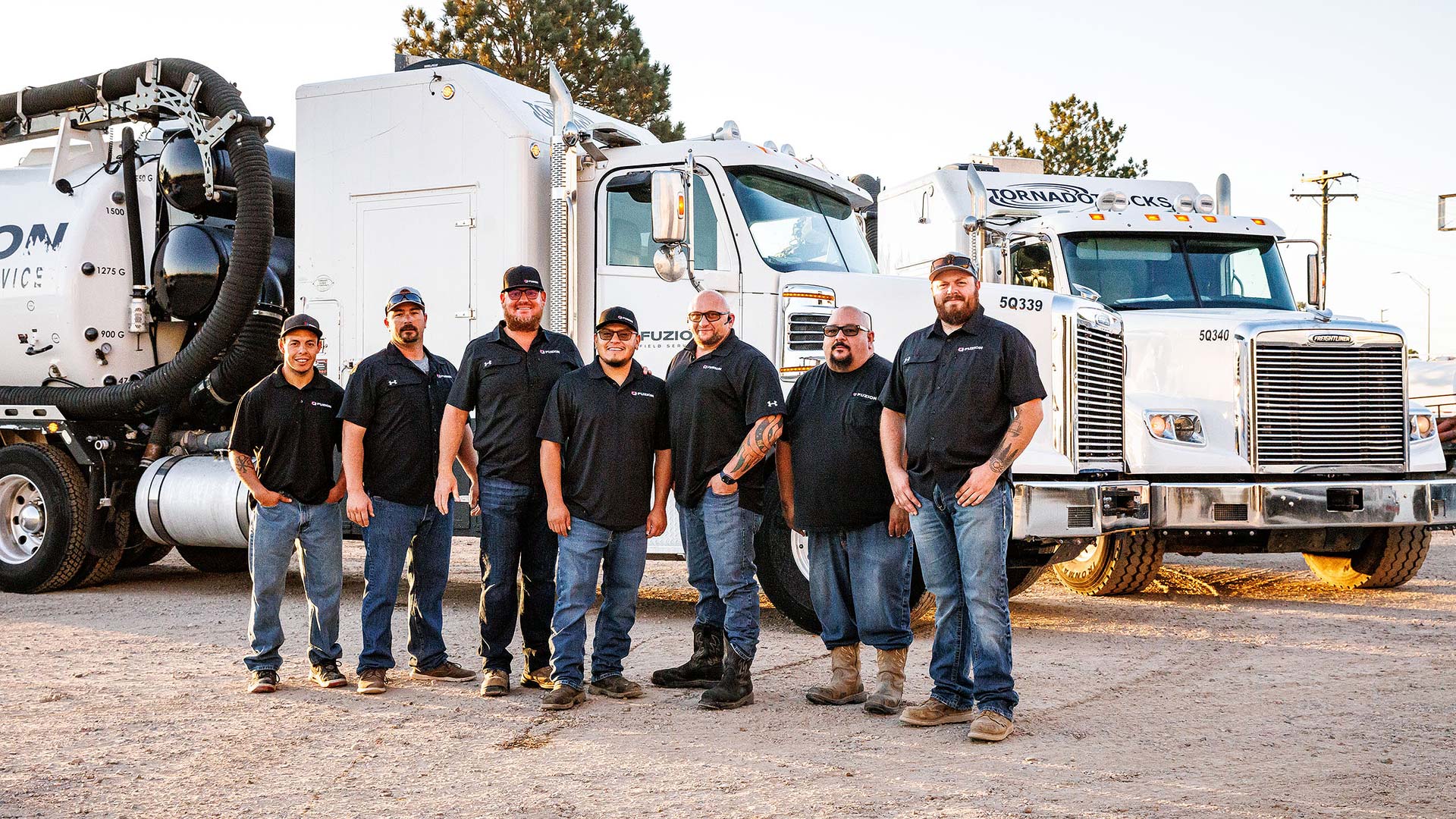A Quick Guide to Sustainable Resource Management Practices
- Blog
Sustainable resource management is a critical practice in today’s world, ensuring that we use natural resources responsibly to meet current needs without compromising future generations. This concept integrates various strategies and principles to maintain a balance between consumption and conservation.
As the global focus on sustainability intensifies, businesses like Fuzion are adopting these practices to contribute positively to environmental stewardship.
What is Sustainable Resource Management?
Sustainable resource management involves the strategic use of natural resources to prevent depletion and maintain their availability for future generations. This practice is crucial for balancing the needs of current and future generations while addressing the environmental, economic, and social challenges posed by resource depletion.
In the United States, sustainable resource management is increasingly recognized for its importance across various sectors:
- Agriculture: Sustainable agricultural practices such as crop rotation, organic farming, and conservation tillage help maintain soil health, reduce water usage, and decrease dependency on chemical fertilizers and pesticides. These practices ensure long-term productivity and environmental health.
- Industry: In industrial sectors, sustainable resource management includes optimizing energy use, reducing waste, and implementing recycling programs. Industries are adopting renewable energy sources like solar and wind power to decrease reliance on fossil fuels and minimize greenhouse gas emissions.
- Urban Development: Urban areas are integrating sustainable practices through green building standards, efficient public transportation systems, and the development of green spaces. These efforts help reduce the urban heat island effect, lower energy consumption, and improve air quality.
Addressing resource depletion is key to sustainable resource management. Depletion happens when resources are used faster than they can be replenished, leading to material shortages, higher costs, and environmental harm. Sustainable practices aim to slow or reverse this by promoting renewable resources and boosting efficiency.
5 Effective Methods for Sustainable Resource Management

1. Measuring and Tracking Resource Supply Levels
Monitoring resource availability aids in making informed decisions about usage and conservation.
- Colorado’s water management programs, like the Colorado Water Plan, offer a framework for managing the state’s water resources.
- This plan emphasizes collaboration in water development and conservation to ensure sustainable use.
- It includes initiatives to track water supplies, helping cities manage consumption and prepare for future challenges.
2. Reducing Consumption and Improving Efficiency
Using resources more efficiently can significantly lower overall consumption. Denver’s Energy Efficiency programs promote energy-saving practices in businesses and homes, including:
- Incentives for upgrading to energy-efficient appliances
- Improving building insulation
- Implementing smart energy management systems
These initiatives help reduce energy consumption and increase efficiency, contributing to sustainable resource management.
3. Recycling, Recovering, and Reclaiming Resources
Recycling programs are vital for sustainable resource management. By recycling metals, plastics, and wastewater, we reduce the need for new raw materials, thus conserving natural resources. This method includes processes like closed-loop recycling, which minimizes waste and reuses materials in production cycles.
4. Switching to Renewable Resources
Transitioning from non-renewable to renewable resources like solar, wind, and hydropower is a cornerstone of sustainable management. Colorado’s Renewable Energy Standard (RES) mandates that a certain percentage of the state’s electricity come from renewable sources. The RES has driven significant investments in renewable energy, including large-scale wind farms in eastern Colorado and solar projects in the San Luis Valley, helping reduce dependence on fossil fuels and lowering greenhouse gas emissions.
5. Reducing Environmental Pollution and Degradation
Mitigating pollution helps preserve natural ecosystems. Practices like reducing greenhouse gas emissions and controlling industrial waste contribute to cleaner air, water, and soil. Effective pollution management strategies include adopting cleaner production technologies and enforcing strict environmental regulations.
Examples of Sustainable Resource Management
Water Management in Cities
Cities such as Los Angeles use advanced tracking systems to monitor their freshwater supplies. This helps manage consumption and ensures a sustainable water supply for urban populations, particularly during droughts.
Energy Efficiency in Industry
Companies in the manufacturing sector have adopted energy-efficient technologies to reduce their overall energy consumption. This includes the use of energy-efficient machinery, optimizing production processes, and employing waste heat recovery systems.
Recycling Programs in Communities
Community recycling programs in cities like San Francisco have successfully diverted a significant portion of waste from landfills. These programs encourage the recycling of household waste, including plastics, metals, and organic matter, reducing the environmental impact.
Renewable Energy Adoption
States like California lead in renewable energy adoption, with extensive use of solar and wind power. These renewable sources provide a significant portion of the state’s electricity, reducing reliance on fossil fuels and lowering carbon emissions.
Pollution Control Measures
Industries along the Mississippi River have implemented pollution control measures to reduce the discharge of harmful substances into the water. These measures include upgrading waste treatment facilities and adopting best practices for waste management to protect water quality.
By integrating these methods and examples, businesses and communities can significantly contribute to sustainable resource management, ensuring the longevity and health of natural resources for future generations.
The Critical Role of Waste Management in Sustainability
Waste management plays a pivotal role in sustainable resource management by minimizing the environmental impact of waste products. Effective waste management strategies include:
- Waste Reduction at Source: Implementing measures to minimize waste generation during production and consumption processes.
- Recycling and Composting Programs: Encouraging the recycling of materials and organic waste composting to reduce landfill use.
- Resource Recovery: Technologies such as waste-to-energy conversion help reclaim valuable resources from waste streams, reducing environmental impact.
Fuzion’s Commitment to Sustainable Resource Management

Fuzion Field Services is dedicated to providing sustainable solutions through innovative waste management and excavation services. Their approach includes:
Hydro Excavation
Hydro excavation uses pressurized water to safely excavate and expose underground utilities, reducing the risk of damage and minimizing soil disturbance. This method is efficient and environmentally friendly, as it avoids the use of heavy machinery that can cause significant environmental disruption.
- Fuzion’s hydro excavation services are particularly beneficial for projects requiring precision, such as:
- Utility location
- Trenching
- Debris removal
Their hydrovac trucks can operate in diverse conditions, including cold weather, and can be positioned up to 400 feet from the dig site to minimize traffic congestion. This capability ensures that projects can proceed smoothly without causing significant disruptions to surrounding areas.
Sustainable Waste Management Practices
Fuzion emphasizes proper waste segregation, recycling, and disposal. Their waste management services include transporting and disposing of industrial waste in compliance with government regulations. Fuzion handles various types of waste, including biosolids, food waste, construction and demolition waste, and hazardous materials.
Environmental Compliance
Adhering to environmental laws and standards is a key aspect of Fuzion’s operations. This compliance ensures that their activities are sustainable and contribute positively to the environment, setting a standard for responsible business practices. Fuzion’s services are designed to meet or exceed all regulatory requirements, providing clients with peace of mind that their waste is managed in an environmentally responsible manner.
Partner with Fuzion for Sustainable Solutions

Fuzion is at the forefront of sustainable resource management, offering a range of solutions that not only address current environmental challenges but also pave the way for a sustainable future.
By adopting these practices, businesses can benefit from cost savings, enhanced reputation, and compliance with environmental standards. Contact us today for more information.